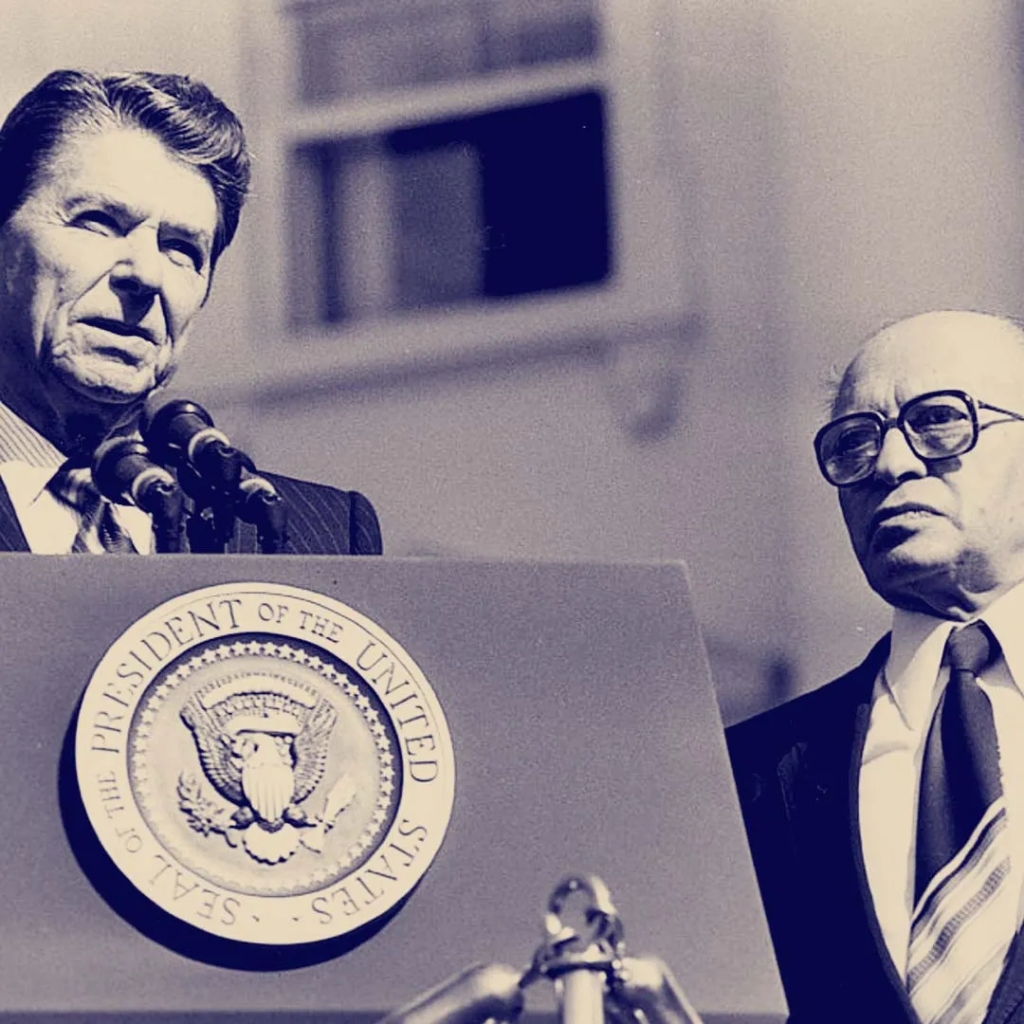These days, the U.S. seems to offer unequivocal support to Israel and has been for decades. The U.S. officialdom perceives that country as a strong, reliable ally in the region. But behind the scenes, there were disagreements, at times, with Israel simply ignoring American advice regarding foreign policy while accepting its arms, intelligence, and funding. Furthermore, American public opinion appeared to be more divided in the past than it is today.
U.S. historians Stephen Ambrose and Douglas Brinkley write about this relationship during the Cold War:
«The difficulty was that the Israelis, although eager to accept American arms and willing to cooperate with the Americans on military intelligence, viewed Arab nationalism and the PLO [Palestinian Liberation Front], not the Russians, as the chief threat.»1
In other words, Israel would accept American support but pursue its own goals rather than those of the U.S. The relationship was complicated further by the status of the Palestinian Arabs. According to these historians:
«[I]n direct defiance of strongly stated American wishes, [Israeli Prime Minister Menachem] Begin continued to encourage Jewish settlement on the West Bank [in the early 1980s], turning it from a potential homeland for the Palestinians into a perhaps a permanent part of greater Israel.»2

One telling incident from this period comes to mind during the Ronald Reagan presidency.
In June 1982, Israel invaded Southern Lebanon. In Israel’s view, the Israel Defense Forces (IDF) sought to target the PLO and used a euphemistic name, Operation Peace for Galilee, for the invasion of its neighbor. The invasion escalated to the Israeli occupation of the area. Syria backed Lebanon. The war featured such atrocities as the Sabra and Shatila massacre, including the killing of hundreds of women and children, which the United Nations declared a genocide. The situation was obviously more complex than the given summary with multiple parties and developments on each side.
The U.S., too, was intimately involved in this war with the technological and intelligence backing of Israel. Reagan even committed boots on the ground, U.S. Marines, as part of the so-called Multinational Force (MNF) in Lebanon.

However, in the U.S., the public reception was mixed. For example, the Israeli shelling of PLO camps in West Beirut—keeping the area under siege in August 1982—led to a broad outcry for Reagan “to disassociate the United States from Israeli action and contributed to the resignation of Secretary of State [Alexander] Haig.”3
Supporting my work allows me to bring you content on a regular basis.
Make a monthly donation
Make a yearly donation
Choose an amount
Or enter a custom amount
Your contribution is appreciated.
Your contribution is appreciated.
Your contribution is appreciated.
DonateDonate monthlyDonate yearlyThe U.S. public was not the only one critical of Israeli actions. The latter “brought worldwide denunciation.”4 On top of this, the costs of war for Israel were in the billions of dollars, while its inflation rate was an annual 400%. Yet, Ambrose and Brinkley continue, Israel refused to leave Lebanon at that time.

The international situation was so terrible, in fact, that in 1983, Reagan attempted to get Israel to pull out of Lebanon after all. The American President even offered Israel security guarantees along its border in the north,:
«[T]his administration is prepared to take all the necessary measures to guarantee Israeli northern borders in the aftermath of the complete withdrawal of the Israeli Army.» 5
This has never happened before! Accepting such a security guarantee would have made a significant difference.
But Israel simply ignored the American offer.
Why?
Because Reagan also floated the idea of establishing “something in the nature of a homeland for the Palestinians.”6
Post Scriptum
Israel ultimately pulled out from Southern Lebanon not later that year or a year after that but in 2000.
Post Post Scriptum
“Encouraging the Israeli invasion,” Ambrose and Brinkley conclude, “had turned out to be a dreadful mistake, made worse by sending the Marines in such insufficient force that they became hostages rather than peacekeepers.”7
Footnotes
1. Ambrose, Stephen and Douglas Brinkley, Rise to Globalism: American Foreign Policy Since 1938, Ninth Revised Edition, London: Penguin Books, 2010, chapter 15, 303-351.
2. Ibid.
3. Ibid.
4. Ibid.
5. Ibid.
6. Ibid.
7. Ibid.